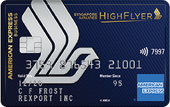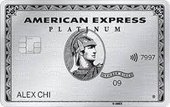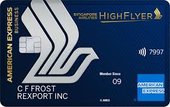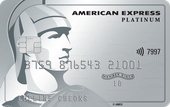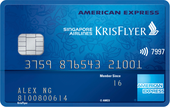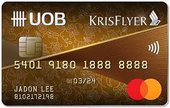What is a credit card foreign transaction fee?
Have you ever bought something while overseas or online, then noticed a separate charge on your credit card statement? That extra charge is the foreign transaction fee.
A foreign transaction fee — typically 2-3% of the amount spent — is charged per transaction made in a foreign currency or with a merchant located outside Singapore. Also known as the foreign currency or forex fee, it covers currency conversion and cross-border processing costs.
Paying in a local currency while overseas
When paying with your credit card while overseas, you may be given the option to pay in SGD. This is called dynamic currency conversion (DCC).
Although this may appear more convenient — and sounds cheaper — it is anything but. Accepting to pay in a local currency while abroad means you'll probably get a poor exchange rate that ends up costing you more.
To get the best exchange rate, reject DCC when offered and pay in the local currency instead.
Potential savings from avoiding foreign transaction fees
In this case study we compare spending the same amount on two cards: one that doesn't charge a fee on foreign currency transactions (Card A) and one that charges 3% (Card B).
Example scenario
Let's assume the following monthly expenses.
- Domestic spending (e.g. petrol utilities, groceries, etc.) = $1,000
- Foreign spending (e.g. hotel, airport transfer, shopping, etc.) = $500
Results
- Card A (no foreign transaction fees). After spending a total of $1,500 for the month in Singapore and overseas, there are no additional costs due to foreign transaction fees.
- Card B (with a 3% foreign transaction fee). After spending the same amount — $1,500 for the month — charges amounting to $15 would be added to the balance due.
Conclusion
In this example, Card A with no foreign transaction fees saves $15 per month, or $180 per year, compared to Card B with its fairly typical 3% foreign transaction fee.
Savings are likely to be more significant over time for someone who frequently shops online or travels frequently.
Who are no foreign transaction fee credit cards suitable for?
One common misconception is that you need to be overseas for a credit card with no foreign transaction fee to save you money. But with so many international online stores, that simply isn't the case.
- Frequent travellers. If you often find yourself exploring new countries, these overseas travel-friendly cards can save you a lot on those pesky fees.
- Online shoppers. If your idea of a perfect evening includes browsing the world's best online shops, a credit card with no foreign transaction fees can help you avoid extra costs.
- Expats and remote workers. Having a card without foreign transaction fees can quickly make a difference in your financial life.
What to compare for no foreign transaction fee credit cards
When you're looking for your next credit card, keep an eye out for these features:
- Annual fees. Is the cost of the card worth the savings from no foreign transaction fees? Can you get a free credit card that doesn't charge foreign currency conversion fees?
- Rewards. Can you earn points or cashback on your purchases? What's the redemption value for these rewards?
- Travel perks. Are there any additional benefits — like airport lounge access or travel insurance — that would enhance your experience?
How to compare no foreign transaction fee credit cards
- Research. Start by compiling a list of cards with no foreign transaction fees. Don't forget to include cards from your current bank and competitors.
- Compare. Put together a side-by-side comparison of benefits and features, including annual fees, rewards earn rates, and additional perks.
- Check your eligibility. Ensure you meet your top choices' credit score and financial requirements, paying attention to income requirements.
- Read the fine print. Look out for any hidden fees or limitations that might affect your decision.
- Apply. Once you've found the perfect card, submit your application and await their decision.
Pros and cons
Pros
- No unnecessary fees. With these cards, you won't be charged for international transactions made while overseas or at home (shopping online).
- Potential rewards. Many of these cards come with rewards programs and additional travel-related perks.
- Convenience. You can confidently use your card overseas or online without worrying about fees.
Cons
- Limited options. Not every card on the market comes without foreign transaction fees.
Alternatives
Various neobanks offer cards with no foreign transaction fees, albeit they are not credit cards. Still, you can compare them against what the banks offer.
- Prepaid travel money card. Works like a debit card, except you have to fund it with however much currency you want. Use it while abroad or when shopping online from an international store.
- Multi-currency account. YouTrip and Wise offer cards with fee-free transactions, plus in-app currency exchange and storage.
- Instarem Amaze. Offers competitive exchange rates, convenient multi-currency spending, and attractive rewards for global travellers.
FAQs
Can I use my no foreign transaction fee credit card everywhere?
A credit card with no foreign transaction fee works like any other credit card and will be accepted by most merchants in Singapore or abroad. That said, there's no guarantee that all merchants will accept every card. Having some local currency on hand is still a good idea, just in case a specific merchant doesn't accept your card.
Do credit cards with no foreign transaction fee have better currency exchange rates?
The foreign transaction fee is not the same as the currency exchange rate. This type of credit card can help you save money by avoiding fees, but their currency exchange rate may not be the best.
Choose to pay in the local currency rather than your home currency when abroad. Choosing to pay in SGD will probably result in a poor exchange rate and the possibility of missing out on rewards.
